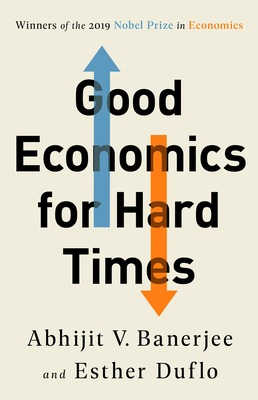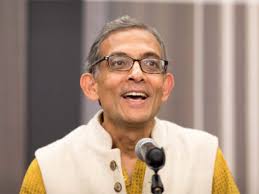

 PublicAffairs
PublicAffairs
Good Economics for Hard Times


Key Metrics
- Abhijit V Banerjee
- PublicAffairs
- Paperback
- 9781541788947
- -
- -
- Business & Economics > Economics - Macroeconomics
- English
 Secure Transaction
Secure TransactionBook Description
Figuring out how to deal with today's critical economic problems is perhaps the great challenge of our time. Much greater than space travel or perhaps even the next revolutionary medical breakthrough, what is at stake is the whole idea of the good life as we have known it.
Immigration and inequality, globalization and technological disruption, slowing growth and accelerating climate change--these are sources of great anxiety across the world, from New Delhi and Dakar to Paris and Washington, DC. The resources to address these challenges are there--what we lack are ideas that will help us jump the wall of disagreement and distrust that divides us. If we succeed, history will remember our era with gratitude; if we fail, the potential losses are incalculable.
In this revolutionary book, renowned MIT economists Abhijit V. Banerjee and Esther Duflo take on this challenge, building on cutting-edge research in economics explained with lucidity and grace. Original, provocative, and urgent, Good Economics for Hard Times makes a persuasive case for an intelligent interventionism and a society built on compassion and respect. It is an extraordinary achievement, one that shines a light to help us appreciate and understand our precariously balanced world.
In this ambitious, provocative book Abhijit V. Banerjee and Esther Duflo show how traditional western-centric thinking has failed to explain what is happening to people in a newly globalized world: in short Good Economics has been done badly. This precise but accessible book covers many of the most essential issues of our day--including migration, unemployment, growth, free trade, political polarization, and welfare. Banerjee and Duflo will confound and clarify the presumptions of our times, such as:
- Why migration doesn't follow the law of supply and demand
- Why trade liberalization can drive unemployment up and wages down
- Why macroeconomists like to bend the data to fit the model
- Why nobody can really explain why and when growth happens
- Why economists' assumption that people don't change their minds has made has made polarization worse
- Why quite often it doesn't take a village, especially if the villagers aren't that nice
In doing so, they seek to reclaim this essential terrain, and to offer readers an economist's view of the great issues of the day--one that is candid about the complexities, the zones of ignorance, and the areas of genuine disagreement.
Author Bio
Abhijit Vinayak Banerjee is the Ford Foundation International Professor of Economics at the Massachusetts Institute of Technology. In 2003 he co-founded the Abdul Latif Jameel Poverty Action Lab (J-PAL) with Esther Duflo and Sendhil Mullainathan, and he remains one of the Lab’s Directors. Banerjee is a fellow of the National Academy of Sciences, the American Academy of Arts and Sciences and the Econometric Society. He is a winner of the Infosys Prize a co-recipient of the 2019 Sveriges Riksbank Prize in Economic Sciences in Memory of Alfred Nobel for his groundbreaking work in development economics research.
Abhijit is the author of a large number of articles and five books, including Poor Economics, which won the Goldman Sachs Business Book of the Year, and Good Economics for Hard Times, both co-authored with Esther Duflo. He is the editor of three more books and has directed two documentary films. Banerjee has served on the U.N. Secretary-General’s High-level Panel of Eminent Persons on the Post-2015 Development Agenda. He is a trustee of Save the Children USA and the Chair of the Global Education Evidence Advisory Panel and the Global Advisory Board for Covid-19 Response of the government of West Bengal.
Education
- Harvard University Ph.D. 1988
Cambridge, Massachusetts
- Jawaharlal University M.A. 1983
New Delhi, India
- University of Calcutta B.Sc. 1981
- Kolkatta, India
Source: Massachusetts Institute of Technology - Department of Economics
Videos






Community reviews
Write a ReviewNo Community reviews